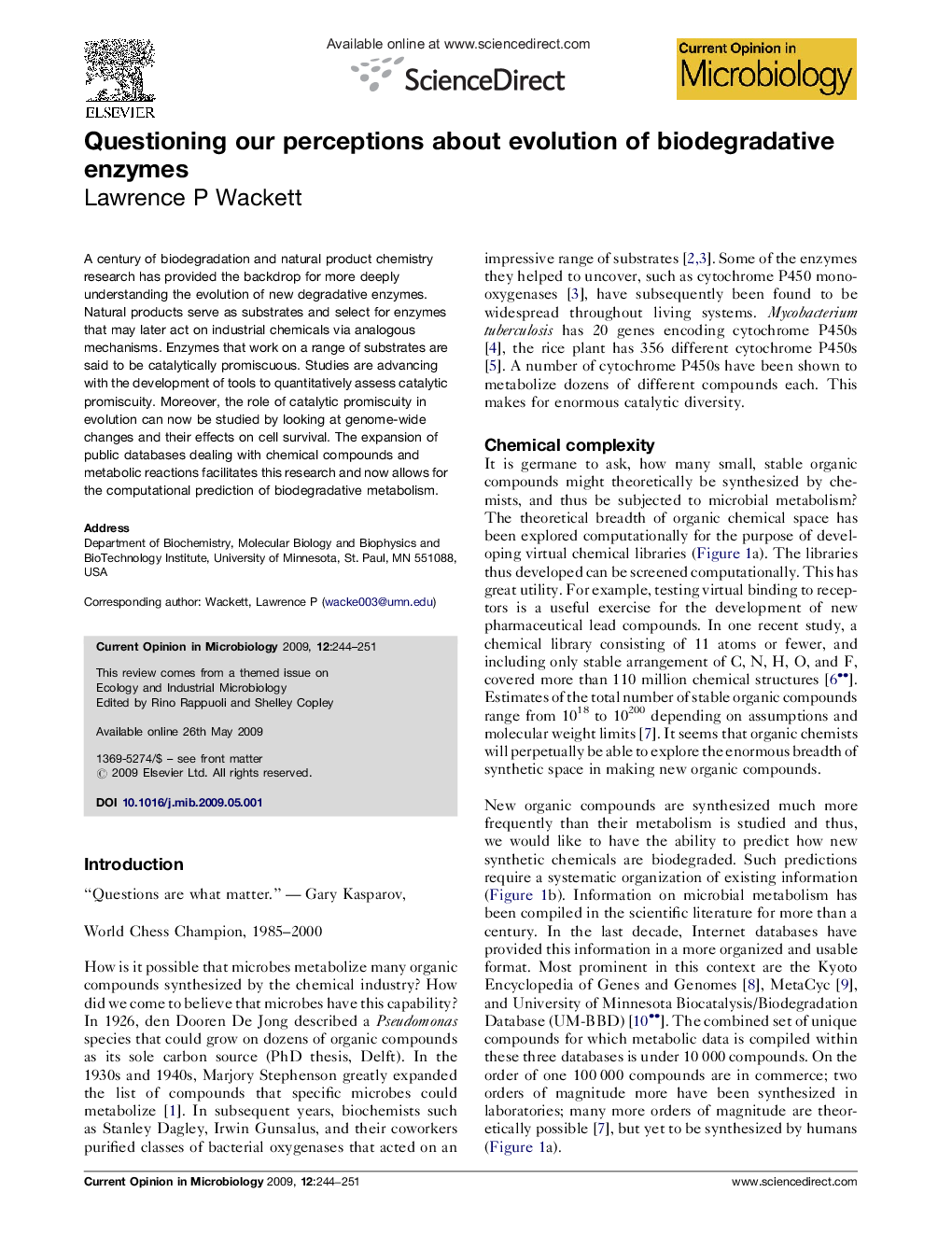| Article ID | Journal | Published Year | Pages | File Type |
|---|---|---|---|---|
| 3399452 | Current Opinion in Microbiology | 2009 | 8 Pages |
A century of biodegradation and natural product chemistry research has provided the backdrop for more deeply understanding the evolution of new degradative enzymes. Natural products serve as substrates and select for enzymes that may later act on industrial chemicals via analogous mechanisms. Enzymes that work on a range of substrates are said to be catalytically promiscuous. Studies are advancing with the development of tools to quantitatively assess catalytic promiscuity. Moreover, the role of catalytic promiscuity in evolution can now be studied by looking at genome-wide changes and their effects on cell survival. The expansion of public databases dealing with chemical compounds and metabolic reactions facilitates this research and now allows for the computational prediction of biodegradative metabolism.
